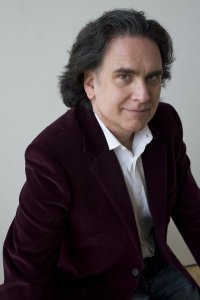A Quote by Rachel Kushner
There were people in Cuba who truly had substantial things to gain from revolution. There were people who had things to lose in the revolution. I think they're all allowed to have their memories of what happened.
Related Quotes
When the industrial revolution happened there was the Luddistic movement, and there was a fear that machinery would replace all the labor. Whenever we had a technological revolution we had this fear. So if you look backwards, these fears were not justified, and I think they were driven by our very human inability to visualize what new jobs will be created by this new technology.
I was born in Cuba. At the age of 14 years of age I was involved in a revolution. We were suffering from a very cruel, oppressive dictatorship, and the revolution started in the high schools and the universities. So when I was 14, I was involved in the revolution. I was in the revolution four years. During that time, a young, charismatic leader rose up in Cuba, talking about hope and change. His name was Fidel Castro.
So far as Chairman Mao's own hopes were concerned, he initiated the "Cultural Revolution" in order to avert the restoration of capitalism, but he had made an erroneous assessment of China's actual situation. In the first place, the targets of the revolution were wrongly defined, which led to the effort to ferret out "capitalist roaders in power in the Party". Blows were dealt at leading cadres at all levels who had made contributions to the revolution and had practical experience, including Comrade Liu Shaoqi.
I think that most people don't think in terms of an American revolution, they think in terms of a Russian revolution, or even a Ukrainian revolution. But the idea of an American revolution does not occur to most people. And when I came down to the movement milieu seventy-five years ago, the black movement was just starting, and the war in Europe had brought into being the "Double V for Victory" [campaign]: the idea was that we ought to win democracy abroad with democracy at home. And that was the beginning of an American revolution, and most people don't recognize that.
Now many things are beginning to come out and it was truly a reality to me when I went to Africa, to Guinea. The little things that had been taught to me about the African people, that they were "heathens," "savages," and they were just downright stupid people. But when I got to Guinea, we were greeted by the Government of Guinea, which is Black People - and we stayed at a place that was the government building, because we were the guests of the Government.
The Bolshevik revolution was a counter-revolution. Its first moves were to destroy and eliminate every socialist tendency that had developed in the pre-revolutionary period. Their goal was as they said; it wasn't a big secret. They regarded the Soviet Union as sort a backwater. They were orthodox Marxists, expecting a revolution in Germany. They moved toward what they themselves called "state capitalism," then they moved on to Stalinism. They called it democracy and called it socialism. The one claim was as ludicrous as the other.
Two hundred years ago, we were all busy farming and we all had a role to play. The home was a unit of production. We made food and all the things we needed, we took care of our kids and were connected to purpose in our evolution. When the Industrial Revolution came along, it took away a lot of the work the men had done.
From its earliest days, the Cuban Revolution has also been a source of
inspiration to all freedom-loving people. We admire the sacrifices of the Cuban people in maintaining their independence and sovereignty in the face of the vicious imperialist-orquestrated campaign to destroy the impressive gain made in the Cuban Revolution. Long live the Cuban Revolution. Long live comrade Fidel Castro.






































